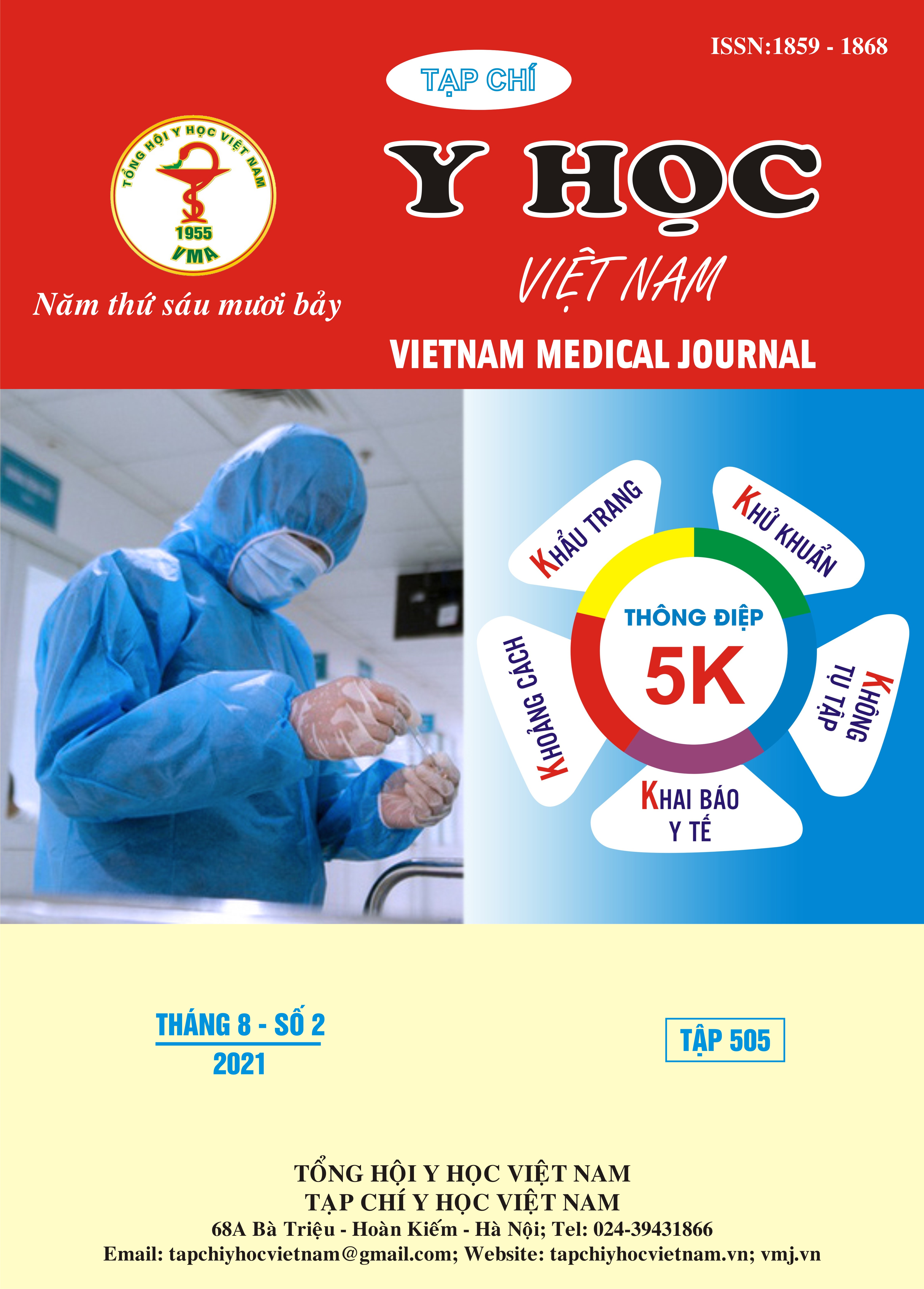KHẢO SÁT HÌNH THÁI VẸO VÁCH NGĂN Ở NHỮNG BỆNH NHÂN KHÁM TAI MŨI HỌNG – BỆNH VIỆN CHỢ RẪY
Nội dung chính của bài viết
Tóm tắt
Mục tiêu: Khảo sát hình thái vẹo vách ngăn ở những bệnh nhân khám Tai Mũi Họng tại Bệnh viện Chợ Rẫy từ tháng 9/ 2019 đến 9/2020. Phương pháp nghiên cứu: báo cáo hàng loạt ca. Trong thời gian 9/2019 đến 9/ 2020 khảo sát 250 trường hợp có vẹo vách ngăn khám tại phòng khám Tai Mũi Họng, Bệnh viện Chợ Rẫy. Kết quả: Vẹo vách ngăn hay gặp là loại 3 (20,0%), theo sau là loại 5 (19,2%), loại 2 (16,8%), loại 1 (14,0%), loại 7(11,6%), loại 4 (7,6%). Kèm theo vẹo vách ngăn thường có các triệu chứng như nhức đầu (63,2%), chảy dịch mũi (60,4%), hắc hơi (54,4%) và nghẹt mũi (30,4%),... Kết luận: vẹo vách có nhiều hình thái, thường gặp nhất là gai vách ngăn một bên hoặc vẹo vách ngăn một bên tại vùng van mũi.
Chi tiết bài viết
Từ khóa
vẹo vách ngăn, gai vách ngăn, dị hình vách ngăn
Tài liệu tham khảo
2. Elahi M. M. et al. (2000), "Septal deviation and chronic sinus disease", American journal of rhinology. 14 (3), pp. 175-180.
3. Elahi M. M. et al. (1997), "Paraseptal structural changes and chronic sinus disease in relation to the deviated septum", The Journal of otolaryngology. 26 (4), pp. 236-240.
4. Low W. et al. (1992), "Submucous resection for deviated nasal septum: a critical appraisal", Singapore medical journal. 33 (6), pp. 617-619.
5. Min Y. et al. (1995), "Prevalence study of nasal septal deformities in Korea: Results of a nation-wide survey", Rhinology. 33 (2), pp. 61.
6. Mladina R. et al. (2008), "Nasal septal deformities in ear, nose, and throat patients: an international study", American journal of otolaryngology. 29 (2), pp. 75-82.
7. Rao J. J. et al. (2005), "Classification of nasal septal deviations-Relation to sinonasal pathology", Indian J Otolaryngol Head Neck Surg. 57 (3), pp. 199-201.
8. Sam A. et al. (2012), "Nasal septal deviation and external nasal deformity: a correlative study of 100 cases", Indian Journal of Otolaryngology and Head & Neck Surgery. 64 (4), pp. 312-318.
9. Šubarić M. et al. (2002), "Nasal septum deformities in children and adolescents: a cross sectional study of children from Zagreb, Croatia", International journal of pediatric otorhinolaryngology. 63 (1), pp. 41-48.
10. Takahashi R. (1971), "Malformations of the nasal septum", A collection of ear, nose and throat studies. Kyoya Co. Ltd, Tokyo, pp. 1-87.
11. Wee J. H. et al. (2012), "Classification and prevalence of nasal septal deformity in Koreans according to two classification systems", Acta oto-laryngologica. 132 (sup1), pp. S52-S57.


